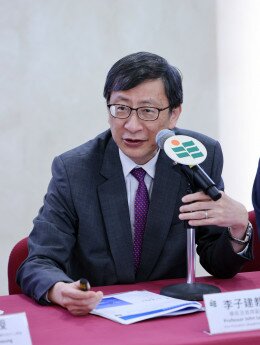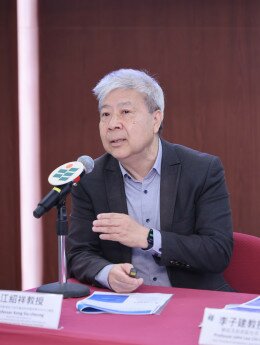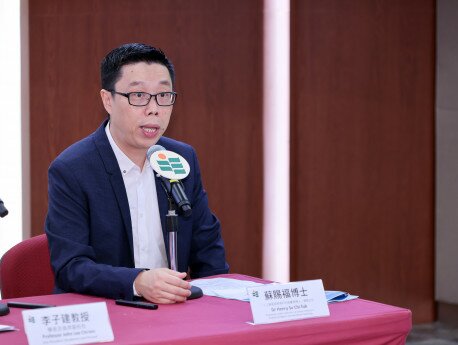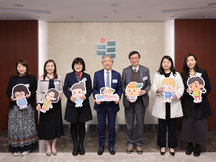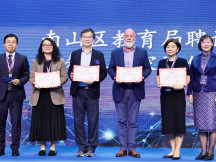EdUHK Releases Pedagogical Approaches on AI Tools to Promote Self-regulated Learning
The Education University of Hong Kong (EdUHK) today (23 March) released a set of pedagogical approaches on the use of Artificial Intelligence (AI)-enabled generative tools, encouraging faculty to enhance learning and teaching efficacy through the use of the new technology.
Considering that these tools can be instrumental in nurturing independent and innovative thinking, the University strives to guide students to use them with a positive attitude. Students may make use of AI-enabled generative tools in their coursework, as long as they make a declaration and articulate their reflections during the learning process. Using their professional judgement, faculty should work with AI-enabled generative tools in teaching and learning, while using detecting tools to ensure compliance with academic integrity. There are also plans to incorporate AI elements into the University’s General Education curriculum, enabling students to build an ePortfolio (3 credit points) with support from AI tools.
The following is the 6-P pedagogical approach, which aims to facilitate the assessment of self-regulated learning:
- Plan: Plan the content and structure of the writing to effectively respond to an issue, research question or problem. This corresponds to the forethought stage of self-regulated learning, where students set goals and plan their way forward;
- Prompt: Generate questions for inquiry and prompts using text-based generative AI tools, which provide resources for thought, discussion and further exploration;
- Preview: Ensure the output from the tools is previewed, checked for accuracy and screened for discrepancies. Students should think critically when examining the tools’ output, supplement the output with additional knowledge and information, search for other supporting literature, and provide alternative views or arguments;
- Produce: Produce the written content by synthesising information from the tools and other academic resources, together with the individual views and personal insights of the students;
- Peer Review: Polish the article with peers and ensure that the content and supporting references are reasonable;
- Portfolio Tracking: Integrate students’ reflections on the writing and learning processes and the formulation of strategies into future writing and learning tasks.
EdUHK Vice President (Academic) and Provost Professor John Lee Chi-kin said, “The emergence of AI technology has brought about tremendous change to conventional teaching. Teachers should be more proactive than ever in serving as facilitators to foster students’ understanding about the strengths and constraints of AI, while promoting the responsible use of technology.”
“I also see the enormous opportunities created for the education sector, with huge demand for talent and expertise in EdTech, software development and data analysis,” he added.
In response to societal and manpower needs, EdUHK has launched the Bachelor of Science (Honours) in AI and Educational Technology programme and the Master of Science in AI and Educational Technology programme. By partnering with Microsoft Hong Kong, the University has also developed an AI Literacy programme to provide self-directed learning and workshops for undergraduate students. As for the school sector, EdUHK has launched another AI programme, benefitting nearly 700 university students and senior secondary students to date.
-Ends-
EdUHK Releases Pedagogical Approaches on AI Tools to Promote Self-regulated Learning
Download all images





